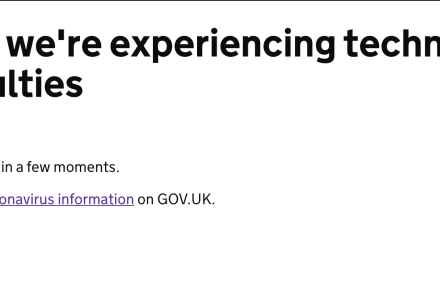Tiers website ends in tears
The government is set to announce today which areas will be moved into the three tiers, once the national lockdown ends on 2 December. To help the anxious public find out if they will be allowed to visit their friends and family, depending on their area, the government helpfully launched a new feature on its website. All you have to do is enter your postcode, and the government will tell you if you’re in tier 1, 2, or 3. That was the idea anyway. It appears though that the government’s tech gurus perhaps weren’t planning for a surge in interest in the restrictions that will affect the lives of millions.




















